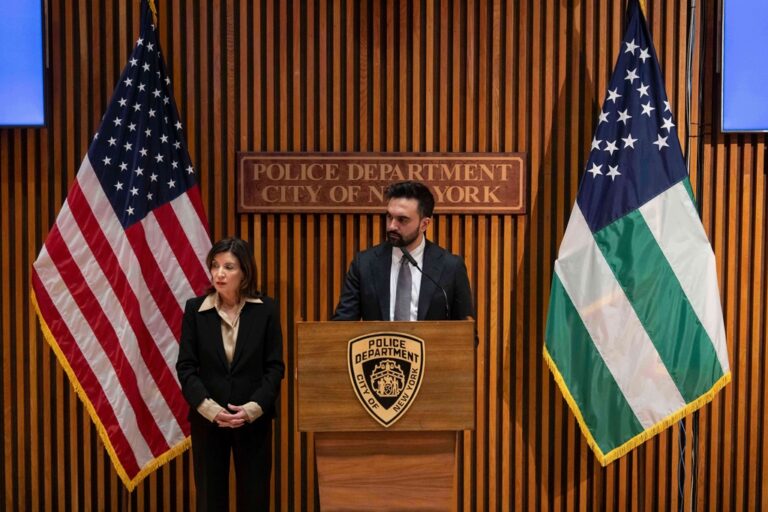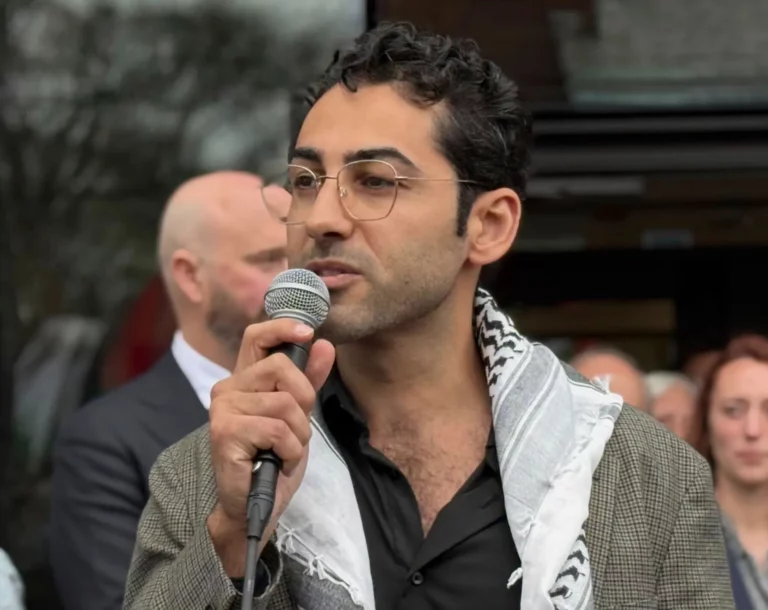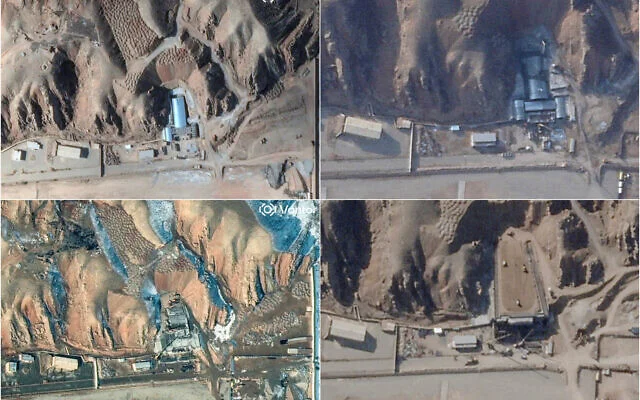In town halls, television interviews and social media posts, Democratic presidential candidates are touting their support for “Medicare-for-all,” higher taxes on the wealthy and a war on climate change. But foreign policy, one of the chief responsibilities of a president, is largely taking a back seat on the campaign trail.
Former Vice President Joe Biden is seizing on that opening to position himself as the sole global policy expert in a crowded Democratic field if he decides to run for president.
In a series of speeches over the past month, Biden sought to position himself as an authoritative counterweight to President Donald Trump’s isolationist and nationalistic impulses. Last week, he told an audience in Germany that his vision of America “stands up to the aggression of dictators.” The problems of the 21st century, he later said at the University of Pennsylvania, can’t be solved “without there being cooperation.” His advisers have endorsed his foreign policy credentials to key political operatives and allies in early-voting presidential states.
The moves reflect the vulnerabilities Biden, a 76-year-old firmly aligned with the Democratic establishment, could face in a crowded primary with rivals who are decades younger and working overtime to appeal to the party’s liberal base. In that kind of race, Biden could carve out space as a battle-tested statesman with the experience to stabilize America’s role in the world.
Sen. Dianne Feinstein, a California Democrat who has already pledged to support Biden over home-state colleague Kamala Harris, recently summed up his advantage: “Huge international experience,” she told reporters. “And a knowledge that’s really unparalleled in terms of what’s happening in the world.”
Scott Mulhauser, Biden’s former deputy chief of staff, said focusing on foreign policy and national security “is a smart way to draw distinctions” in the primary field.
But running on foreign policy could carry risks for Biden. Although the election season is in its infancy and a crisis could shuffle priorities, it’s not clear that foreign policy is a top issue on voters’ minds.
AP VoteCast, a nationwide survey of the American electorate, found that 5 percent of 2018 midterm voters said foreign policy was the top issue facing the country. That falls well behind the percentage saying health care (26 percent), immigration (23 percent) or the economy (18 percent) topped their list of issues facing the country.
Trump’s foreign policy has alarmed longtime allies and spurred criticism at home. A January AP-NORC survey found that 35 percent of Americans approve of the president on foreign policy, while 63 percent disapproved. Trump’s slated second summit with North Korean leader Kim Jong Un next week will provide a fresh opportunity for the president to rebound or fall further, as well as for his Democratic would-be opponents to draw sharp contrasts with his self-proclaimed “America First” diplomacy.
But that doesn’t mean that Democrats, who are sorting through the most diverse and wide-open primary field in a generation, will warm to a Biden campaign focused on foreign policy.
“He’s got the experience, but I don’t want him to run,” said Julie Neff, of Ankeny, Iowa, home to the nation’s first caucus next year. “I would vote for a ticket that promised to put Biden in the Cabinet, like as secretary of state.”
Biden’s potential 2020 rivals are working to build their own foreign policy credentials, even if they’ve yet to spend a lot of time touting them to voters. Massachusetts Sen. Elizabeth Warren this month proposed legislation that would prevent the United States from using nuclear weapons as a first-strike option, saying she wants to “reduce the chances of a nuclear miscalculation.” Vermont Sen. Bernie Sanders has helped lead the charge on Capitol Hill to extricate the nation from the violent civil war in Yemen.
Yet Democratic candidates have generally avoided specifics when criticizing Trump’s foreign policy, in part because voters often press them on other topics.
At a series of Harris town halls in South Carolina and New Hampshire — her first events in both states as a declared candidate — voters did not question her on foreign policy, instead focusing on a range of domestic issues including health care, education and labor.
In Iowa City last week, New York Sen. Kirsten Gillibrand said Trump’s withdrawal from the United Nations’ global climate change accord shows he “has refused to take the natural role of America, which is to be a beacon of light and hope.”
Underscoring the Democratic base’s keen interest in issues beyond foreign policy, Gillibrand approached the topic only when asked by a voter if she agreed climate change was the paramount threat facing the planet.
Gillibrand, who like Warren sits on the Senate Armed Services Committee, later gave few specifics when asked by reporters how specifically she would repair relations with allies.
“I would reach out to all world leaders and begin to have a more thorough and thoughtful conversation about shared interests and shared security concerns,” she said.
Because the campaign season is just beginning, Democratic candidates will have plenty of opportunity to build out their foreign policy agendas. Warren, who delivered a major speech on global affairs last year, aligned herself with Trump’s use of “diplomatic pressure” in recognizing a new interim president of Venezuela before criticizing his “saber-rattling” during an interview last week with the liberal Pod Save America. Sanders, for his part, recently declined when asked by Univision to urge socialist Venezuelan President Nicolas Maduro to step aside in favor of new leadership.
Sen. Chris Murphy, D-Conn., a prominent foreign policy voice who’s pushed alongside Sanders to end U.S. involvement in Yemen, urged his colleagues running for president to make foreign policy “a wedge issue.”
“I think he’s deeply vulnerable on national security,” Murphy said of Trump in a recent interview. “The national security gap has always been a huge liability for Democrats, and Trump’s mishandling of foreign crisis after foreign crisis gives us an opportunity to eliminate that gap.”
(AP)











One Response
He is by far the best potential candidate in either party.